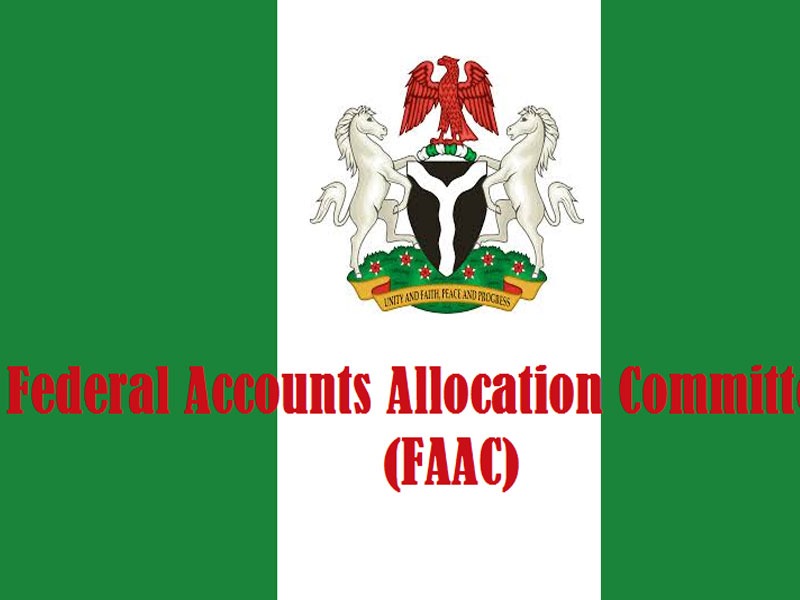FAAC Disbursements: Report Shows Wide Disparity As Delta Gets N218bn In 2019, Osun N24bn

A recent report has shown wide disparity between net disbursements received by states from the Federation Accounts and Allocation Committee (FAAC) as Delta State got the highest of N218.58 billion in 2019, a figure that is equal to nine years of the N24 billion received by Osun State.
According to the report, Osun and Cross River states received the lowest FAAC allocation of N24.14billion and N36.22Billion respectively in 2019, while Delta State received the highest disbursement of N218.58 billion.
“Put differently, if we assume that the net disbursements received by both states were fairly constant, then, the amount received by Delta State in 2019 alone can be used to cover disbursements to Osun State in nine years”, the Report stated.
The information and data are contained in the latest edition of the Nigeria Extractive Industries Transparency Initiative (NEITI) Quarterly Review of FAAC disbursements to the federal government, states, local governments and other statutory bodies, released in Abuja recently.
According to the report, three states received less than N40billion, nine states received between 40billion-49billion while fourteen states received between 50billion-59billion respectively in the year under review. Four states namely; Borno, Katsina, Edo and Kaduna got between 60-69billion and Kano State with N82.34 billion.
Four states of the Niger Delta Region plus Lagos were among the big league of states that received over N100billion from FAAC allocations. The Report noted that this is “Owed largely to the effects of 13% derivation” sharing formula.
Another significant issue highlighted by the NEITI Quarterly Review was the inadequacy of the net FAAC disbursements to cover the full budgets of all the states. “The figures clearly indicated that no state was able to finance its total budget based on FAAC disbursements alone. These states would need Internally Generated Revenues (IGR) to fulfil this purpose”, the NEITI report stated.
The report added that in 21 states of the federation, “Net FAAC disbursements alone could not service their recurrent expenditure. The NEITI report also compared the total revenue accruable to each state of the federation to the states budgets and concluded that “Even with the addition of IGR to FAAC disbursements, no state can independently finance its budget. Thus, all states would be faced with the option of either not fully implementing their budgets or borrowing to achieve this”.
A further analysis showed that the sum of N8.15 trillion was shared between the Federal, States, Local Governments and other statutory recipients by the Federation Accounts and Allocation Committee in 2019.
This figure is N377billion or 4.42% lower than the 2018 figure of N8.524trillion, but N1.728trillion or 26.92% higher than the total disbursements of N6.419trillion made in 2017.
Out of this amount, the Federal Government received N3.37 trillion, representing 41.4% of total disbursements; the 36 states got N2.761 trillion (33.9%) while the 774 local governments shared N1.649 trillion (20.2%) of the total disbursements.
The report identified a general rising trend in FAAC disbursements from the beginning of the year till about August 2019 when disbursements either fell slightly or remained relatively stable. These figures, the report noted, “highlighted the volatile nature of government revenue in Nigeria owing to high fluctuations in oil prices. A central feature of these figures was that disbursements were higher in the second half of 2019 than the first half”.
Furthermore, the publication which examined FAAC disbursements to the Federal, States and Local governments in 2019 in comparison with previous years, and after comparing crude oil prices between January 2015 and December 2019, made projections for the year 2020.
“The available data to NEITI for the first month of 2020 indicated an average oil price of $58.6 per barrel as against the $56.9 in 2019 and $64.9 per barrel price of 2018. This suggests that oil prices in 2020 will experienced slight increase over the 2019 figures” it said.
The report noted that with increased efforts and collaboration between Organization of Petroleum Exporting Countries (OPEC) and other major oil producers to stem falling oil prices, it is hoped that oil prices will not fall further, and this will result in increased revenue for the Federation, and ultimately boost FAAC disbursements in 2020.





























